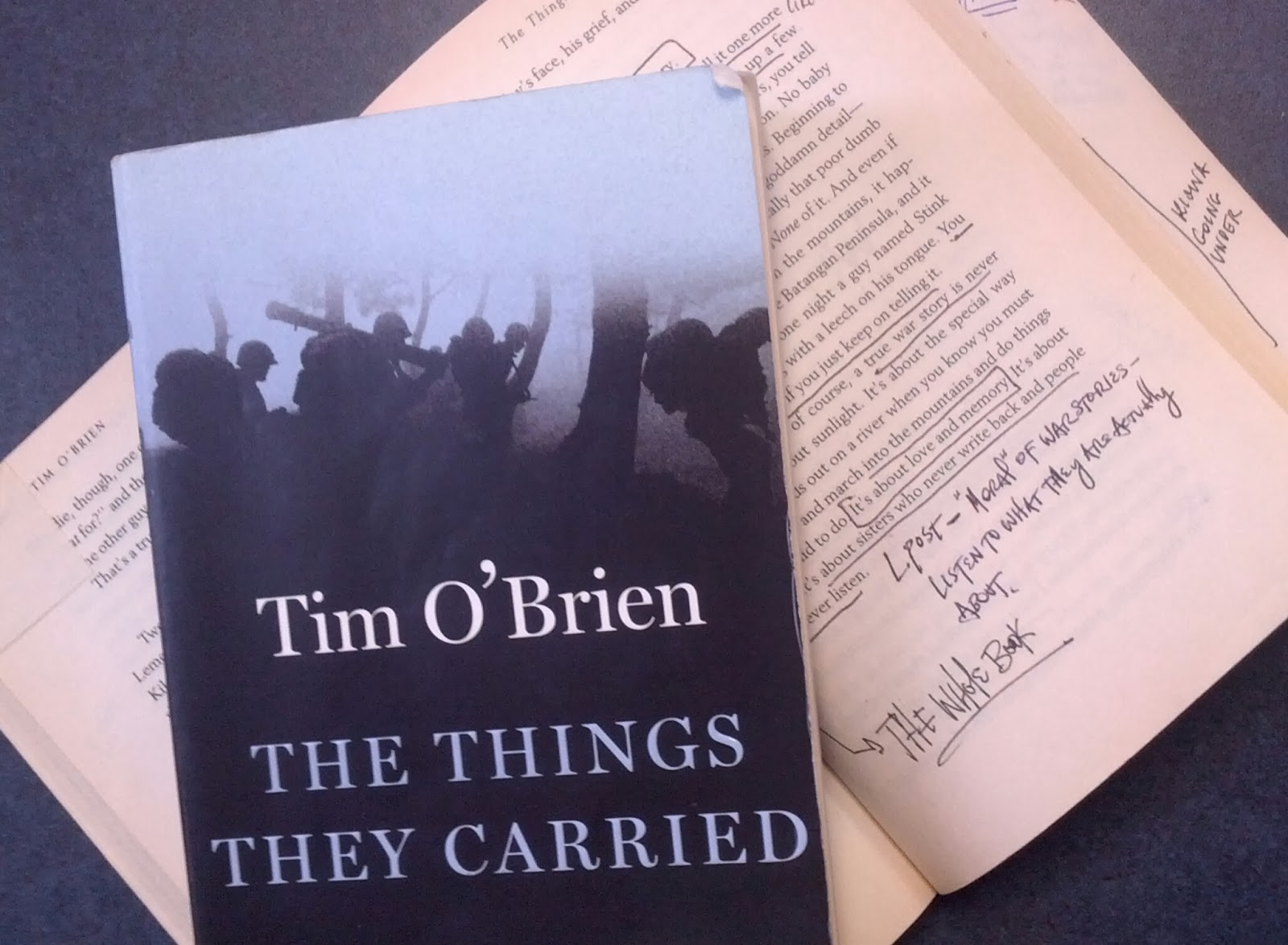
For me, the book in question is Tim O'Brien's The Things They Carried. Here's something Mr. O'Brien says about one of the character's perspectives on storytelling:
O'Brien is referring to Rat Kiley's proclivity for mixing healthy doses of imagination into his stories in order to conjure the deepest emotional resonance in his audience. The same idea is in play for me when discussing the book in class. After all, this novel thoroughly changed my perspective about so much. For example, it made me reconsider the following: how artists use form to communicate ideas; why stories are so important to tell and to hear; how stories themselves are created; what we mean by the word "truth"; and what it means to be human and to struggle with the burdens of love, death, joy, grief, and all of the "intangibles [with] their own mass, specific gravity, [and] tangible weight" (20). In light of all this, it is not surprising that I feel frustrated when I perceive the kids are not getting it or are unmoved.
Perhaps some students have come to expect books they read in class to have little relevance in their lives. Maybe reading books in class too often has followed a similar trajectory: read, take quizzes, write a paper, take a test. O'Brien himself suggests that literature is meant for more than this. In an interview with Big Think, he states that, "literature makes you feel. . .less alone in the world." This makes so much sense. After all, when a reader takes up a book, she must be willing to develop a relationship with the writer. Unlike any other art form, a book is only completed when a writer's words have been processed in another person's mind.
I want my students to have this relationship with Tim O'Brien. Sometimes I see it grow. Often times, I do not. It is difficult to accept when the relationship does not materialize. It is like introducing students to a close friend who they have rejected without really getting to know. Of course, it is quite possible that the way I frame the book is not helping students to connect with it in deeper ways. This just makes it worse. Like I know they would love this friend if I could just find something they have in common.
 Unfortunately, the introduction only happens once, which is a lot of pressure. Not to sound melodramatic or unnecessarily solemn, but introducing students to these voices is an important duty. Whether it is O'Brien, Miller, Hurston, Thoreau, or any number of others, the great challenge of my job is to lay the groundwork for a lasting relationship. Realistically, I know this relationship will not take root between every student and every writer. We all have our discrete tastes. Still, I view every book launch in my classroom as an opportunity to create the conditions for a deep student-writer bond, while grappling with student's rejection of works and writers.
Unfortunately, the introduction only happens once, which is a lot of pressure. Not to sound melodramatic or unnecessarily solemn, but introducing students to these voices is an important duty. Whether it is O'Brien, Miller, Hurston, Thoreau, or any number of others, the great challenge of my job is to lay the groundwork for a lasting relationship. Realistically, I know this relationship will not take root between every student and every writer. We all have our discrete tastes. Still, I view every book launch in my classroom as an opportunity to create the conditions for a deep student-writer bond, while grappling with student's rejection of works and writers.But when it is an old friend, it hurts a little deeper. Tim O'Brien says that "literature does touch people; it's not just to be read in English classes" (Big Think). However, the classroom can be that place where people learn to be readers. Mr. O'Brien, you're out there somewhere. Thank you for such an incredible work (and for all of your work). Know that I'm trying to do it justice.







